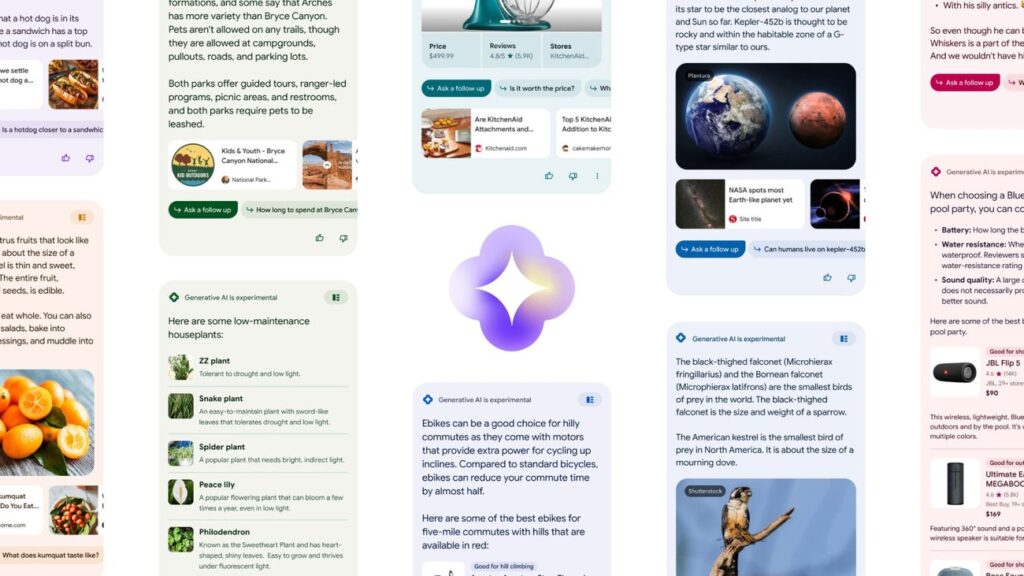The marketing landscape is ever-evolving, and staying ahead of the curve often means embracing change before it becomes a trend. One of the most disruptive changes that marketers are witnessing today is the application of AI in search engines, led by Google’s recently unveiled Search Generative Experience (SGE). For small and medium-sized businesses (SMBs), this could be both an opportunity and a challenge. Let’s dive in to understand what Google’s SGE means for SMB marketers.
What is Google’s Search Generative Experience?
Imagine if your prospective customers could get all the information they were searching for without ever leaving Google’s search page. That’s what Google’s SGE aims to do. It uses generative AI models to provide contextually rich, dynamic, and interactive search results. Not just a list of URLs, but a detailed response, complete with relevant statistics, images, and the option to ask follow-up questions.

How is SGE Different from Google Bard?
Google Bard, another AI-powered product from Google, focuses on delivering text-based, conversational responses in a storytelling format. SGE, on the other hand, is integrated directly into Google’s search engine and provides dynamic answers using various forms of media.
What This Means for SMB Marketers
1. The Shifting Importance of Click-Through Rates
Because SGE can provide extensive information within the search engine, users might not feel the need to click through to your website. This could mean a decline in organic search traffic. For SMBs, this is particularly challenging because every visit counts.
Strategy: Start focusing on other metrics like engagement rate, page dwell time, and lead magnet downloads as indicators of a successful digital strategy.

2. The Rise of Conversational Content
Traditional SEO is undergoing a transformation. With SGE focusing on natural language processing, keyword stuffing won’t get you far. The content that performs well will likely be conversational in nature, resonating with how people naturally speak and ask questions.
Strategy: Revamp your content strategy to include conversational phrases and long-tail keywords. This means your blog posts, FAQs, and even product descriptions should be more human-centric.
3. Providing Unique Value is Critical
If Google can answer a user’s query comprehensively, why would they visit your website? This means that your content needs to offer something that SGE cannot.
Strategy: Consider developing in-depth guides, how-to videos, and comprehensive FAQs that delve deep into the topics that matter to your audience. This content can also serve as excellent lead magnets.
4. Combatting Misinformation
One of the pitfalls of AI is the risk of misinformation. If SGE mistakenly provides incorrect information about your product or industry, there’s not much you can do to correct it directly within Google’s search.
Strategy: Make sure all your content is well-researched and cites reliable sources. Moreover, proactively address common misconceptions in your industry through your content.
5. Always Stay Updated
The digital landscape, particularly in the realm of search, is constantly evolving. What works today may not work tomorrow.
Strategy: Make a habit of keeping an eye on your engagement metrics and adjust your strategies as you notice shifts in performance.
Final Thoughts
While SGE presents challenges, it also offers opportunities for SMBs to provide more focused, high-value content that can still attract customers, even in a world where click-through rates might not be the ultimate measure of success. The key is adaptability and a willingness to embrace new forms of engagement and measurement.
So go ahead, take a closer look at your content and SEO strategies, and prepare your SMB for the future of search. It’s an exciting time to be a marketer, and those who adapt will thrive.





